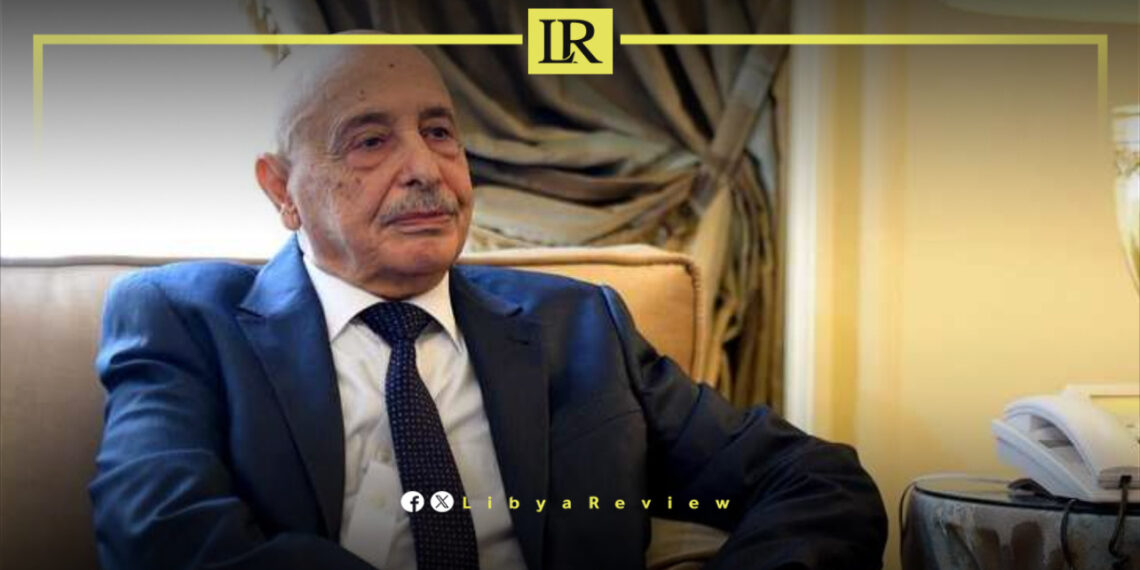On Thursday, the Libyan Parliament dismissed reports that its Speaker, Ageela Saleh, issued a decision to revoke the tax on foreign exchange transactions. In a brief statement, the Parliament’s spokesperson, Abdullah Blehaq, clarified that Saleh had not canceled the tax on foreign currency sales, refuting circulating claims.
Earlier this week, the Tripoli-based Central Bank of Libya, appointed by the Presidential Council, announced it would halt the implementation of Ageela Saleh’s Decision No. 15 of 2024. This decision imposed a tax on the official exchange rate for foreign currency sales, and the suspension was set to take effect on Tuesday.
However, the Benghazi-based Central Bank’s Deputy Director of Banking and Currency Supervision, Abdullah Al-Abdali, instructed commercial and specialized banks to disregard the directive from Tripoli.
Al-Abdali stated that no action should be taken until official instructions are received from the new Central Bank Governor, Naji Issa Belgasem, and his deputy, Marai Al-Barassi.
Naji Issa Belqasem, the newly appointed Governor of the Central Bank of Libya, and his deputy, Marai Al-Barassi, were sworn in on Tuesday during an official session of the House of Representatives in Benghazi. The session was chaired by First Deputy Speaker Fawzi Al-Nuwairi. On Wednesday, Belgasem assumed his duties at the Central Bank’s headquarters in Tripoli.
Upon taking office, Governor Naji Issa Belgasem issued a decree that revoked 55 decisions made by his predecessor, Abdel Fattah Abdelghaffar, who was appointed by the Presidential Council. These decisions, made between August 27 and October 1, 2024, were annulled as part of Belgasem’s efforts to reset the bank’s policies. However, Belgasem notably did not revoke the foreign exchange tax imposed by Ageela Saleh, leaving the tax in effect despite the broader cancellations.
Libya’s financial landscape has been marred by division, with two rival central banks operating in Tripoli and Benghazi, respectively. This split reflects the ongoing political and territorial divisions within the country, which have persisted since the 2011 revolution.
The tax on foreign exchange transactions was introduced as part of wider economic reforms intended to stabilize Libya’s volatile financial system, which has been severely affected by conflict, corruption, and fragmented governance.


